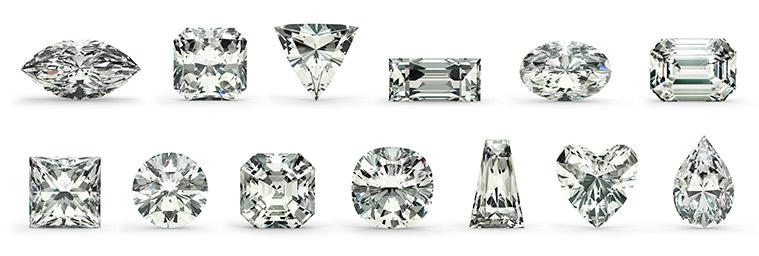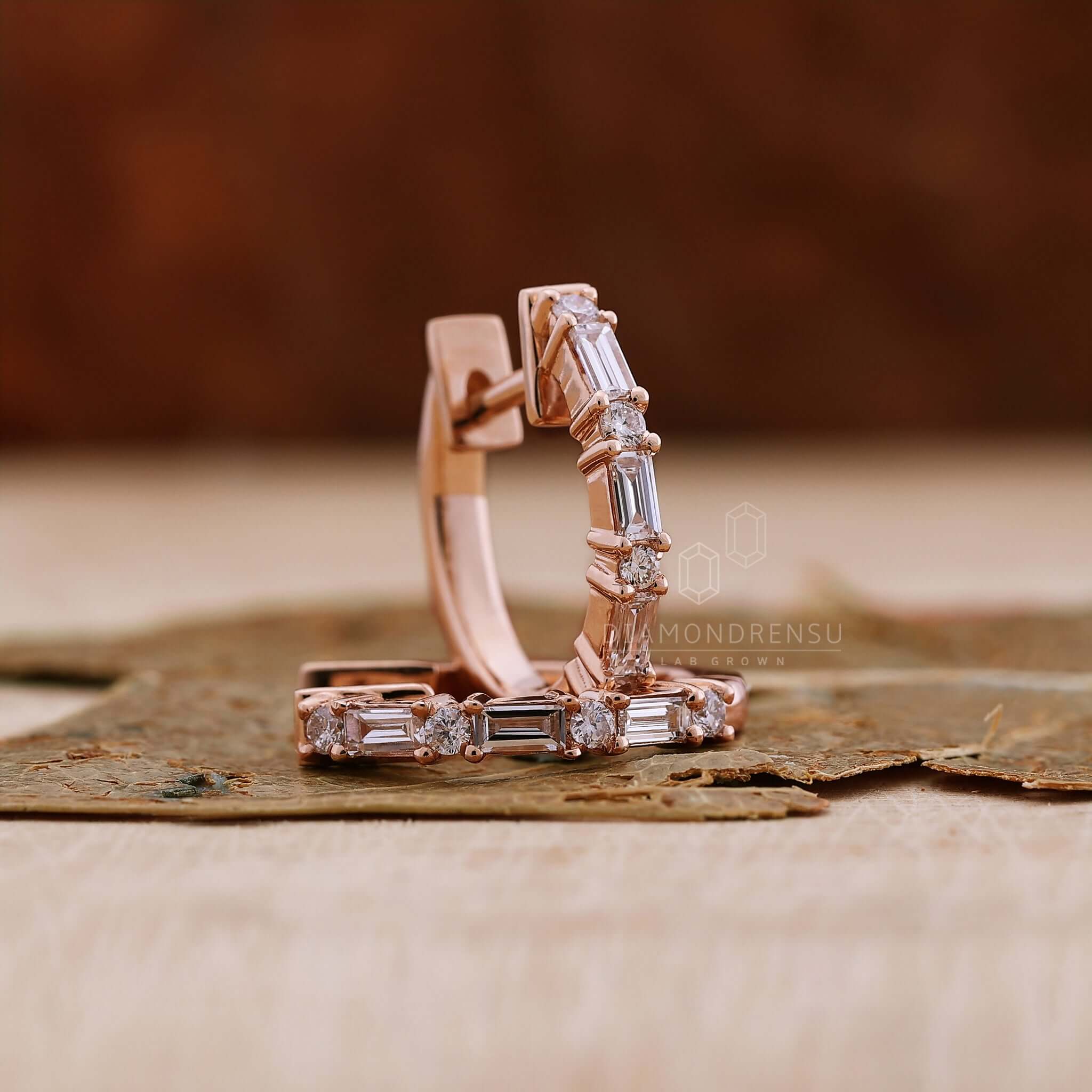
IGI vs GIA Lab Grown Diamonds: Which Certification Should You Choose?
Lab-grown diamonds are making waves in the jewelry industry, offering an eco-friendly and cost-effective alternative to mined diamonds. However, the authenticity and quality of these diamonds are paramount, leading to the crucial role of certification. Two prominent certification bodies, the International Gemological Institute (IGI) and the Gemological Institute of America (GIA), dominate the market. So, how do IGI and GIA stack up against each other when it comes to lab-grown diamonds? Let’s dive into the details.
What Are Lab-Grown Diamonds?
Lab-grown diamonds, also known as synthetic diamonds, are created in a controlled laboratory environment using high-pressure high-temperature (HPHT) or chemical vapor deposition (CVD) methods. These diamonds have the same physical, chemical, and optical properties as natural diamonds but are produced in a fraction of the time and cost.
The benefits of igi vs gia lab grown are manifold. They are environmentally friendly, as their production doesn’t involve mining, which can be harmful to the earth. Moreover, they are often more affordable than natural diamonds, making them an attractive option for consumers.
Why Certification Matters
Certification is the diamond industry’s way of assuring consumers of the quality and authenticity of their purchase. A certified diamond comes with a detailed report that outlines its characteristics, such as carat weight, color, clarity, and cut. This documentation is vital not only for buyers to understand what they are purchasing but also for resale and insurance purposes.
Understanding IGI (International Gemological Institute)
History and Background
Founded in 1975, the International Gemological Institute (IGI) is one of the oldest and most reputable gemological laboratories in the world. IGI operates globally, providing certification for both natural and lab-grown diamonds.
Certification Process
IGI’s certification process involves a thorough examination of the diamond using advanced equipment and techniques. Each diamond is analyzed by a team of gemologists who assess its various attributes.
Grading Criteria
IGI’s grading criteria are comprehensive, covering the four Cs: carat, color, clarity, and cut. IGI reports also include a detailed description of the diamond’s proportions and any fluorescence.
Understanding GIA (Gemological Institute of America)
History and Background
Established in 1931, the Gemological Institute of America (GIA) is a non-profit organization and one of the most trusted names in diamond certification. GIA is renowned for its rigorous standards and thorough grading process.
Certification Process
GIA’s certification process is meticulous, involving multiple gemologists who independently evaluate the diamond. This multi-tiered approach ensures consistency and accuracy in their reports.
Grading Criteria
GIA’s grading criteria are considered the gold standard in the industry. The institute’s reports detail the four Cs and provide a comprehensive assessment of the diamond’s overall quality.
Comparing IGI and GIA Certifications
Differences in Grading Standards
While both IGI and GIA are reputable, their grading standards can differ. GIA is known for its stricter grading criteria, which can result in slightly different evaluations for the same diamond compared to IGI.
Turnaround Time for Certification
IGI generally offers a faster turnaround time for certification compared to GIA. This can be a significant factor for retailers and consumers who need quick certification.
Cost of Certification
GIA certification is typically more expensive than IGI. This cost difference is often justified by GIA’s stringent grading process and the premium attached to their brand name.
Quality of Reports
Detail and Accuracy of IGI Reports
IGI reports are detailed and provide a clear understanding of the diamond’s characteristics. They are user-friendly and accessible to both industry professionals and consumers.
Detail and Accuracy of GIA Reports
GIA reports are known for their precision and depth. They are highly respected in the industry and often considered the most reliable certification available.
Market Perception
IGI’s Reputation in the Industry
IGI is well-regarded, lab diamonds, particularly in the European and Asian markets. It is trusted by many retailers and consumers for its accurate and comprehensive reports.
GIA’s Reputation in the Industry
GIA has a stellar reputation worldwide. It is often seen as the benchmark for diamond certification, and GIA-certified diamonds are highly sought after.
Consumer Trust and Preference
Surveys and studies indicate that many consumers prefer GIA-certified diamonds due to the institute’s stringent grading standards and global recognition. However, IGI also enjoys a high level of trust, particularly for lab-grown diamonds.
Personal anecdotes and testimonials often highlight positive experiences with both certification bodies, but GIA frequently edges out IGI in terms of perceived credibility.
Resale Value and Investment
Impact of Certification on Resale Value
GIA-certified diamonds generally command higher resale values due to their reputation and rigorous grading process. IGI-certified diamonds also hold good resale value, especially when the diamond is of high quality.
Investment Potential of IGI vs GIA Certified Diamonds
Investing in diamonds requires careful consideration of various factors, including certification. GIA certification is often preferred for investment purposes due to its high market trust. However, IGI-certified diamonds are increasingly being recognized as valuable investments, particularly in the lab-grown sector.
Availability and Accessibility
Number of Certified Diamonds in the Market
Both IGI and GIA certify a large number of diamonds annually. However, GIA-certified diamonds are more prevalent in the U.S. market, while IGI has a strong presence in Europe and Asia.
Geographic Availability of IGI and GIA
GIA has more global offices and laboratories, making it more accessible for international consumers. IGI, while also global, has fewer locations but offers a robust online presence for certification services.
Environmental and Ethical Considerations
Lab-Grown Diamonds and Sustainability
Lab-grown diamonds are celebrated for their environmental benefits. They require fewer resources and cause less environmental damage compared to mined diamonds.
Ethical Implications of Certification Bodies
Both IGI and GIA are committed to ethical practices. They ensure that their certification processes do not involve any conflict diamonds and adhere to strict ethical guidelines.
Choosing the Right Certification for You
When choosing between IGI and GIA certification, consider factors such as budget, the importance of brand reputation, and how quickly you need the certification. Both organizations provide reliable and detailed reports, so you can’t go wrong with either choice.
Practical Tips for Buyers
Understand Your Needs: Determine what aspects of the diamond are most important to you.
Compare Reports: Look at sample reports from both IGI and GIA to understand the differences.
Seek Expert Advice: Consult with a jeweler or gemologist to make an informed decision.
Consider Resale Value: If you plan to sell the diamond in the future, GIA certification might be more advantageous.
Future Trends in Diamond Certification
The diamond industry is evolving, with new technologies and trends emerging. Both IGI and GIA are continually updating their processes to stay ahead.



